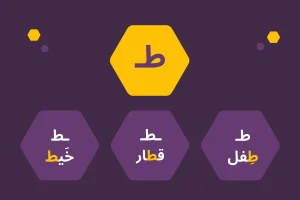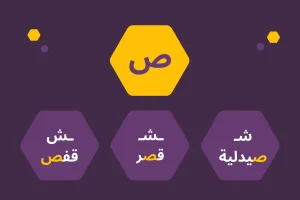
Ramadan Rituals
Ramadan holds a unique place in the hearts of Muslims worldwide. It’s a period marked by deep spiritual reflection, prayer, and community.
Beyond the well-known practice of fasting from dawn until sunset, Ramadan encompasses a range of rituals that enrich the spiritual lives of Muslims and bring them closer to Allah.
In this blog, we explore the significance and meaning behind the 6 inspiring rituals observed during Ramadan.
From the dawn-to-dusk fasting that teaches self-discipline and empathy, to the communal iftars that bring families and communities together, each ritual plays a vital role in the observance of this holy month.
Ritual 1: صَوم
Fasting
ṣawm
Fasting, or “Ṣawm” in Arabic, is one of the Five Pillars of Islam. During the month of Ramadan, Muslims abstain from food, drink, smoking, and sinful behavior from dawn until sunset.
It’s a time for spiritual reflection, self-improvement, and heightened devotion. Through fasting, people learn how to think of the poor and those in need.
Ritual 2: إِفطار
Breaking the fast (Iftar)
Ifṭār
Iftar is the meal with which Muslims break their daily fast during Ramadan, immediately after sunset.
It traditionally starts with the eating of dates and drinking water, followed by a larger meal. Iftar is often a communal event shared with extended family and friends.
Ritual 3: سُحُور
Suhoor (Pre-dawn Meal)
Suḥūr
Suhoor is the pre-dawn meal consumed by Muslims before the fast begins at dawn (Fajr prayer).
It’s the last meal eaten before starting the fast and is crucial for providing energy and hydration throughout the day.
Ritual 4: صلاةُ التراويح
Tarawih (Evening prayer)
Ṣlātu al-Tarāwīḥ
Tarawih prayers are extra prayers performed by Muslims at night in the Islamic month of Ramadan.
These prayers are performed in congregation after the Isha prayer and can consist of up to 20 rakats (units of prayer). They are a time for reflection on the Quran and for seeking additional spiritual rewards.
Ritual 5: زكاةُ الفِطر
Zakat (Alms giving)
Zkātu alfiṭr
Zakat is a form of alms-giving treated in Islam as a religious obligation or tax, which, by Quranic ranking, is next after prayer in importance.
During Ramadan, Muslims pay Zakat al-Fitr, a specific form of charity given to the poor to enable them to celebrate the festival of Eid al-Fitr at the end of Ramadan.
Ritual 6: إحياءُ ليلةِ القدر
Observing the Night of Decree
Iḥyāʼu lylti al-qadar
The Night of Decree, also known as Laylat al-Qadr, is considered the holiest night of the year for Muslims. It is believed to be the night when the Quran was first revealed to the Prophet Muhammad, peace be upon him.
Muslims spend this night in prayer, reading the Quran, and performing acts of worship, seeking God’s forgiveness, mercy, and blessings.
Other Rituals
There are other religious rituals that are not exclusive to Ramadan but are performed in Ramadan more frequently than in other months of the year as Muslims take this opportunity to do more good deeds.
The following actions are expected of Muslims throughout the year but are encouraged especially during Ramadan:
- صَدَقَة – Ṣadaqah: Charity
- صِلَةُ الرَحم – Ṣilatu alraḥim: Maintaining Kinship Ties
- صلاةُ التهجد – Ṣlātu altahajud: Tahajud (night prayer
Final word
As we say in Arabic,
تقبل الله منا ومنكم صالح الأعمال
May Allah accept from us and from you (our) good deeds.
You can read our blog on Ramadan greetings and supplications here.
Don’t miss our quick quiz on Ramadan vocabulary! It will help you remember and correctly use the newly learned words, allowing you to see your mistakes and retake the quiz as many times as needed until you master them.
And if you would like some special practice in Arabic, download our app and start learning the language with fun and engaging exercises.
See you in our next blog!




